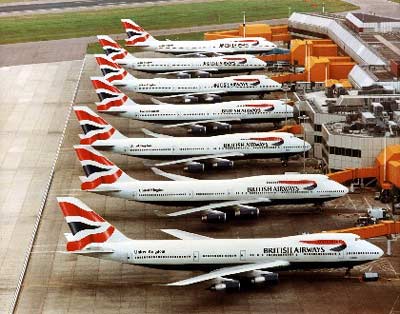The biojet fuel British Airways is planning to produce in its new plant in London has not yet been certified for use by the UK authorities, the airline has admitted to the Guardian.
British Airways said that it would build what is believed to be Europe’s first plant to manufacture “biojet fuel” using food scraps and other waste in an attempt to cut greenhouse gas emissions from aircraft.
The waste would come from food scraps and other household material like grass and tree cuttings, agricultural and industrial waste. The airline said it would not buy palm oil – a core ingredient for much of the biofuel used in cars, the cultivation of which has accelerated deforestation.
The airline also took into account the greenhouse gas emissions saved by not sending material to landfill, which produces harmful methane. It said it was still talking to biomass suppliers.
But Friends of the Earth said more land would be taken up to grow crops and trees for biofuels in planes, pushing out food production. Kenneth Richter said: “What happens in five years if this kind of feedstock becomes too expensive or scarce?
“Many things colloquially called ‘waste’ are often valuable resources for other processes. There are far better ways to use the limited amounts of waste wood available, for example in biomass plants, than in jet fuel. There is already a lot of competition for arable land for food production and to make biofuels for road transport.”


